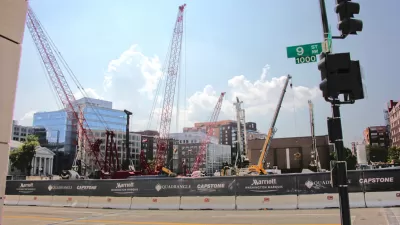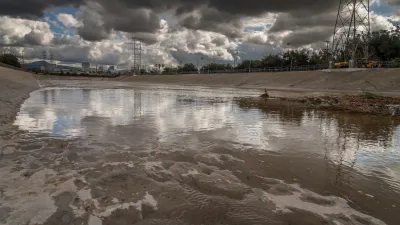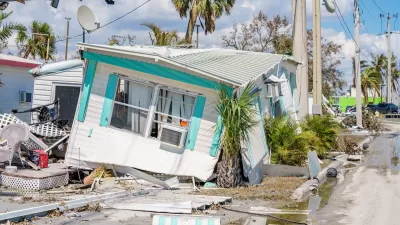When distributing new federal funding, state leaders should ensure that selected projects are aligned with the state's climate resilience goals.

"Like states across the country, Massachusetts is preparing to put these billions of dollars in federal funding toward 'shovel ready' infrastructure projects," write Lizzy Weyant and John Stout in Commonwealth Magazine. "These investments are designed to lay the groundwork for a strong, long-term economic recovery." The authors argue that "we learned from former President Obama’s stimulus package that it’s important to fund not just 'shovel-ready' projects, but 'shovel-worthy' projects," which is "the only way we will make our transportation system stronger and more climate resilient." But in Massachusetts, "[m]ost projects currently on our long-term transportation plan have languished for years."
Despite having laundry lists of desired projects, "many cities and towns lack the funding to do the necessary studies to have them listed on the state’s transportation plans. The Baker administration should set aside money to allow cities and towns to invest in those critical planning and design efforts that unlock more transformative investments now and in the future, with a particular focus on multi-municipal and regional projects." Strategic investment, Weyant and Stout write, can "shift our travel patterns for the better" and prioritize climate resiliency and innovation. "This new round of federal funding gives us an opportunity to reconsider what types of transportation projects we prioritize, and to ensure we make transformative investments that fund under-invested communities while bringing our transportation system into the 21st century."
FULL STORY: Mass. needs to prioritize shovel-worthy projects

Planetizen Federal Action Tracker
A weekly monitor of how Trump’s orders and actions are impacting planners and planning in America.

San Francisco's School District Spent $105M To Build Affordable Housing for Teachers — And That's Just the Beginning
SFUSD joins a growing list of school districts using their land holdings to address housing affordability challenges faced by their own employees.

The Tiny, Adorable $7,000 Car Turning Japan Onto EVs
The single seat Mibot charges from a regular plug as quickly as an iPad, and is about half the price of an average EV.

With Protected Lanes, 460% More People Commute by Bike
For those needing more ammo, more data proving what we already knew is here.

In More Metros Than You’d Think, Suburbs are Now More Expensive Than the City
If you're moving to the burbs to save on square footage, data shows you should think again.

The States Losing Rural Delivery Rooms at an Alarming Pace
In some states, as few as 9% of rural hospitals still deliver babies. As a result, rising pre-term births, no adequate pre-term care and "harrowing" close calls are a growing reality.
Urban Design for Planners 1: Software Tools
This six-course series explores essential urban design concepts using open source software and equips planners with the tools they need to participate fully in the urban design process.
Planning for Universal Design
Learn the tools for implementing Universal Design in planning regulations.
Smith Gee Studio
City of Charlotte
City of Camden Redevelopment Agency
City of Astoria
Transportation Research & Education Center (TREC) at Portland State University
US High Speed Rail Association
City of Camden Redevelopment Agency
Municipality of Princeton (NJ)





























